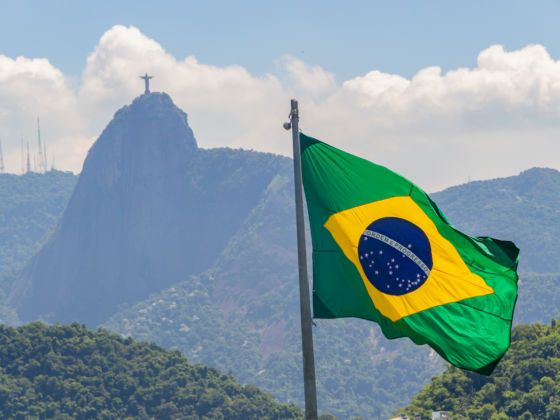The whole world looks on as Brazil scrambles to get everything ready in time for the 2014 World Cup. Watching a corrupt, unaccountable government equip a third-world country to host an internationally anticipated event might seem like a global-scale reality TV show, but it’s actually a pretty good window by which people all over the world can experience the issues facing today’s Brazil.

The World Cup Will Benefit Brazilians in One Way and One Way Only
You see, this mixture of uncertain anticipation and amused indifference is a trademark Brazilian feeling. It originates from years of watching smiling, fairly elected thieves promise the people better lives — we know they won’t even try to make improvements, but we still secretly hope each time it will be different.
FIFA President Joseph Blatter can calm down — everything will be ready on time, and the world will have its entertainment. But while Blatter and Brazilian President Dilma Rousseff will celebrate the event, the Brazilian people will use the press coverage to let the world know that both the FIFA World Cup and the government that supports it are corrupt, unethical, and abusive organizations.
Brazilian corruption is widely discussed internationally, and FIFA’s indifference towards unethical governments abusing their people to prepare for the World Cup is shameful. When FIFA forbids any kind of protest signs in Brazilian stadiums during the Confederations Cup, and the FIFA secretary general Jerome Valcke has the gall to say that “less democracy is better for a World Cup,” it’s unsurprising that the ongoing Brazilian protests have been two-fold: anti-government and anti-FIFA.
It’s unlikely President Rousseff predicted the turmoil the World Cup would cause here. She probably assumed Brazilians would be pleased, but unfortunately she failed to realize that by bringing an internationally abusive organization to Brazil, she was mixing politics with her most effective control tool.
There are many things Brazilians have the right to protest about. Mainly the fact that 2014 will be a wasted year for the people, where no improvements will be made and there will be no work done in Congress. First they will be distracted by the World Cup, and straight after there will be the presidential elections. That’s right, 2014 is an exceptionally important year for Brazil — and hopefully an awful year for the people currently in charge.
The leaders say in the end this year will be worth it because of the FIFA-standard legacy that will be left behind. International events like this are supposed to leave the host country better off: better transport, cleaner and reformed streets, new tourist spots, more job opportunities, and a better economy. But the way it’s going, none of this will happen.
The AFP recently published a photo of a woman in China producing hundreds of World Cup mascots — these were commissioned by the event’s organizers. If the World Cup was really committed to leaving a legacy behind, why aren’t these plush toys being produced in Brazil? Hundreds, if not thousands of Brazilians could benefit from the jobs, and it would bring capital into the country.
Brazil will also be left with useless football stadiums in places where football audiences are minuscule. Brasilia, Manaus, and Natal have no big teams to attract any kind of crowds after the cup. Not exactly a useful kind of ‘legacy’ anyway, as it practically serves no one in the population but football lovers.
The Rio de Janeiro airport has also been a sore point: In the first week of January, a three-year-old girl from Argentina fell through a hole next to an escalator, exactly where thousands of tourists are supposed to be received in June. On investigation, it was revealed that the escalators were a health hazard and violated the standards stipulated by the Ministry of Labour. Anyone who has ever been to that airport knows there’s not enough space for such a large flows of travelers. The air conditioning is faulty, the service is appalling, and taxi drivers are eager to fool foreigners into paying exorbitant amounts of money for a short drive. Brazilians were promised an improved airport, yet six months away from the World Cup there have been no visible betterments.
As a journalist, I have seen up close how the Brazilian population is being neglected. From children who are scarred for life by violence in the favelas, to Native Indians who are denied their rights to their own culture, the leaders of Brazil and FIFA are undoubtedly taking advantage of a population that desperately needs their government to work.
But this year the government won’t work. The World Cup has been driving money and resources away from the population for the last seven years, and once it’s done politicians will be focusing only on re-electing themselves after a hopefully successful event. That’s all that matters, and they’ll use the protests as a talking point to pretend they’ve been listening to the masses, even though all they will have done in 2014 is work towards pleasing the rest of the world.
In turn, the population will not stay quiet. As the rich watch the matches within the stadiums, the Brazilians who could never possibly afford a ticket, who are already socially excluded enough, will be using the global press coverage to protest against FIFA and President Dilma. Joseph Blatter might not realize it, but along with all the awful things the World Cup will leave behind, perhaps one thing is good: the social consciousness of the people.